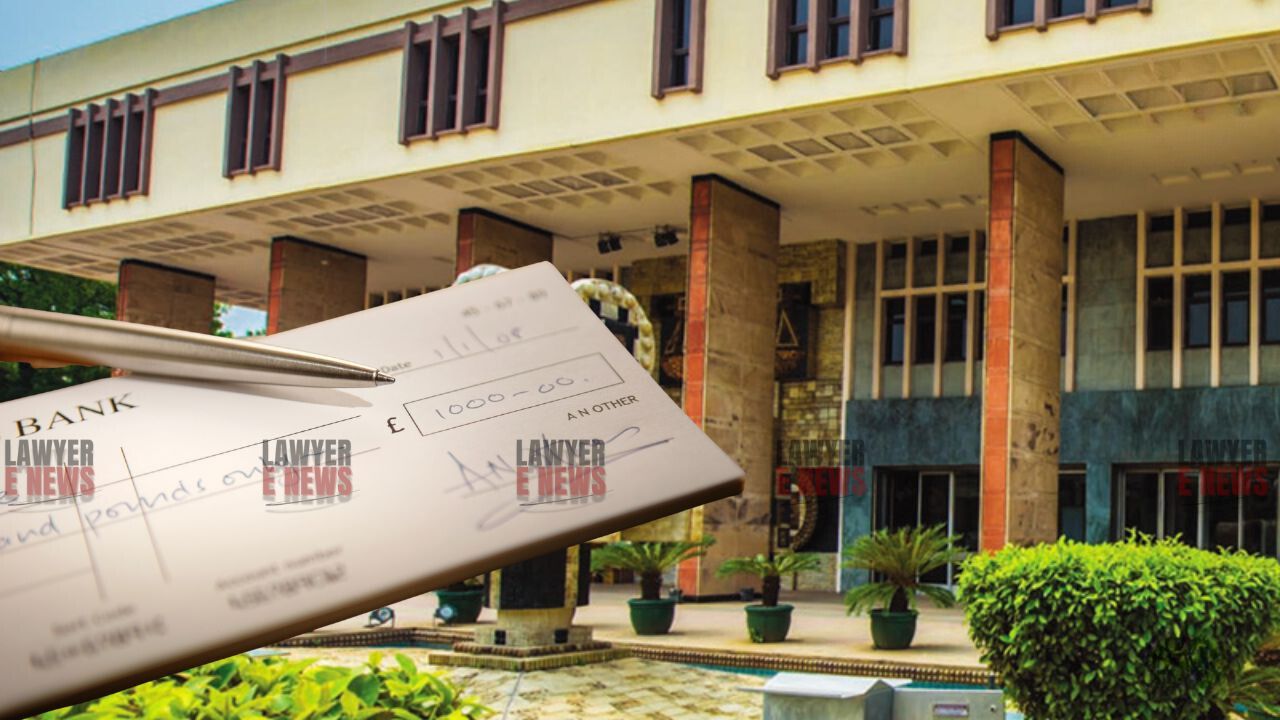-
by Admin
15 February 2026 5:01 PM



The Delhi High Court has overturned a trial court’s acquittal in a cheque bounce case under Section 138 of the Negotiable Instruments Act (NI Act), 1881. The judgment, delivered by Justice Anish Dayal on August 16, 2024, underscores the importance of the legal presumption under Section 139 NI Act, which mandates that once the execution of a cheque is admitted, the burden shifts to the accused to rebut the presumption that the cheque was issued for the discharge of a debt or liability.
The case stems from a complaint filed by Amit Jain, who extended a friendly loan of Rs. 3,60,000 to his friend Sanjeev Kumar Singh in May 2016, to be repaid by April 2017. In May 2017, after repeated requests for repayment, Singh issued a cheque for Rs. 1,80,000 as part payment. However, the cheque was dishonored due to insufficient funds. Jain, after receiving no response to a legal demand notice, filed a complaint under Section 138 of the NI Act. The trial court acquitted Singh, citing insufficient evidence of the loan’s existence and the complainant’s financial capacity.
Justice Dayal emphasized that the trial court erred by not properly applying the presumption under Section 139 NI Act. The High Court noted that once the accused admits the signature on the cheque, as Singh did, a presumption arises that the cheque was issued for the discharge of a debt or liability. “The burden was on the accused to rebut this presumption with substantial evidence, which he failed to do,” observed the court.
The High Court criticized the trial court for incorrectly placing the burden on the complainant to prove the existence of the debt beyond reasonable doubt, rather than requiring the accused to disprove it. Justice Dayal highlighted that the trial court had improperly focused on the complainant’s financial capacity and the lack of documentary proof of the loan, without giving due consideration to the legal presumption in favor of the cheque holder.
The High Court reaffirmed the legal principles laid out by the Supreme Court in cases such as Bir Singh v. Mukesh Kumar and Basalingappa v. Mudibasappa, which clarify that the presumption under Section 139 NI Act is a rebuttable presumption. The onus is on the accused to raise a probable defense, either by direct evidence or by circumstances that negate the existence of a debt.
“The fundamental flaw on the part of the Trial Court was failing to note the effect of the presumption under Section 139 NI Act,” stated Justice Dayal. “Mere denial by the accused in his statement under Section 313 CrPC, without any supporting evidence, is insufficient to rebut the statutory presumption.”
The Delhi High Court’s judgment sends a clear message about the proper application of the presumption under Section 139 of the NI Act. By overturning the trial court’s acquittal, the High Court has reinforced the legal framework that protects cheque holders and ensures that the burden of disproving liability lies with the accused once the execution of a cheque is admitted. The case has been remanded to the trial court for further proceedings consistent with this ruling.
Date of Decision: August 16, 2024.
Amit Jain vs. Sanjeev Kumar Singh & Anr.
